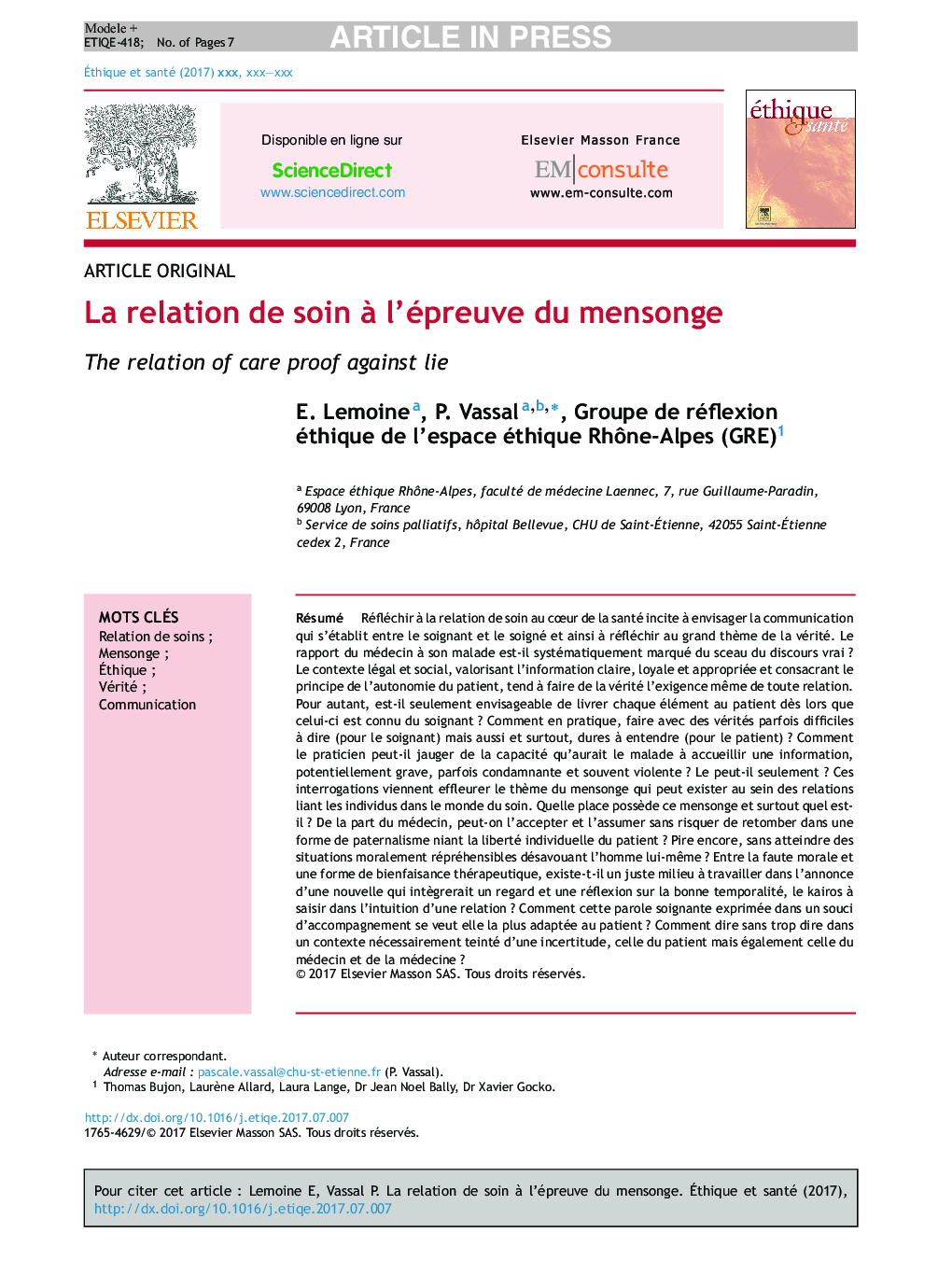| کد مقاله | کد نشریه | سال انتشار | مقاله انگلیسی | نسخه تمام متن |
|---|---|---|---|---|
| 7509994 | 1486215 | 2017 | 7 صفحه PDF | دانلود رایگان |
عنوان انگلیسی مقاله ISI
La relation de soin à l'épreuve du mensonge
دانلود مقاله + سفارش ترجمه
دانلود مقاله ISI انگلیسی
رایگان برای ایرانیان
کلمات کلیدی
موضوعات مرتبط
علوم پزشکی و سلامت
پزشکی و دندانپزشکی
سیاست های بهداشت و سلامت عمومی
پیش نمایش صفحه اول مقاله

چکیده انگلیسی
To think about the relation of care at the heart of the health incites to envisage the communication which becomes established enter the nursing and the patient and so to think about the big theme of the truth. Is the relationship of the doctor to his patient systematically marked with the seal of the true speech? The legal and social context, valuing the clear, loyal and appropriate information and dedicating the principle of the autonomy of the patient, tends to make of the truth the requirement of any relation. However, it is only possible to deliver every element to the patient since this one is known of the nursing? How in practice, to make with the truths sometimes difficult to say (for the nursing) but also and especially, last to hear (for the patient)? How can the practitioner gauge of the capacity which would have the patient to receive information, potentially serious, sometimes condemning and often forces? Can it only? These interrogations come to skim the topic of the lie which can exist within the relations binding the individuals in the world of the care. Which place has this lie and especially which is it? On behalf of the doctor, can one accept it and assume it without being likely to fall down in a form of paternalism denying the individual freedom of the patient? Worse still, without reaching morally reprehensible situations repudiating the man himself? Between does the moral fault and a therapeutic form of benevolence, exist a happy medium to be worked in the announcement of a news which would integrate a glance and a reflection on good temporality, the kairos to be seized in the intuition of a relation? How does this looking after word expressed in a preoccupation with an accompaniment want to be it the most adapted to the patient? How to say without saying too much in a context necessarily tinted of an uncertainty, that of the patient but also that of the doctor and medicine?
ناشر
Database: Elsevier - ScienceDirect (ساینس دایرکت)
Journal: Ãthique & Santé - Volume 14, Issue 3, September 2017, Pages 151-157
Journal: Ãthique & Santé - Volume 14, Issue 3, September 2017, Pages 151-157
نویسندگان
E. Lemoine, P. Vassal, Groupe de réflexion éthique de l'espace éthique Rhône-Alpes (GRE) Groupe de réflexion éthique de l'espace éthique Rhône-Alpes (GRE),